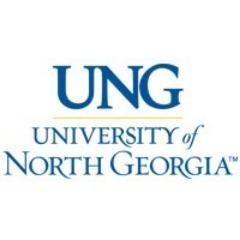"Our university has a major impact on the economy, workforce and culture of this region, and we need to be both responsive and proactive in meeting the needs of the state, this region and the country," said UNG President Bonita C. Jacobs. "As we seek to provide a high-quality education to our students and serve the northeast Georgia region, it is vital that our faculty, staff and students and the members of the community have opportunities to provide their input and share their opinions."
UNG's Strategic Planning Steering Committee, a broad-based representation of about 60 faculty, staff and students from the university's four campuses, was formed last fall to guide the university through the current phase of the strategic planning process, "Engaging UNG: Planning for Excellence." Strategic planning is a collaborative process through which the university community develops a shared vision of its future and goals.
The committee is co-chaired by Dr. J.B. Sharma, professor and assistant department head of physics, and Dr. Andrew J. Leavitt, vice president for university advancement and professor of chemistry.
Town hall meetings are an important part of the strategic planning process for UNG to ensure that alumni and the community, in addition to university faculty, staff and students, have opportunities to learn about and comment on the work of the Strategic Planning Steering Committee. In addition to the town hall meetings, comments also can be submitted via the strategic planning website.
Leavitt is leading the efforts to engage alumni, donors and the community and noted that members of the committee also will solicit feedback from their specific constituencies.
"A strategic plan without community input is only half a plan," Leavitt said. "Gathering input from people outside of the university will be critical for the committee to develop a strategic plan that best serves the university and our communities."
Community meetings are scheduled as follows and typically last about an hour:

http://accesswdun.com/article/2014/2/271536
